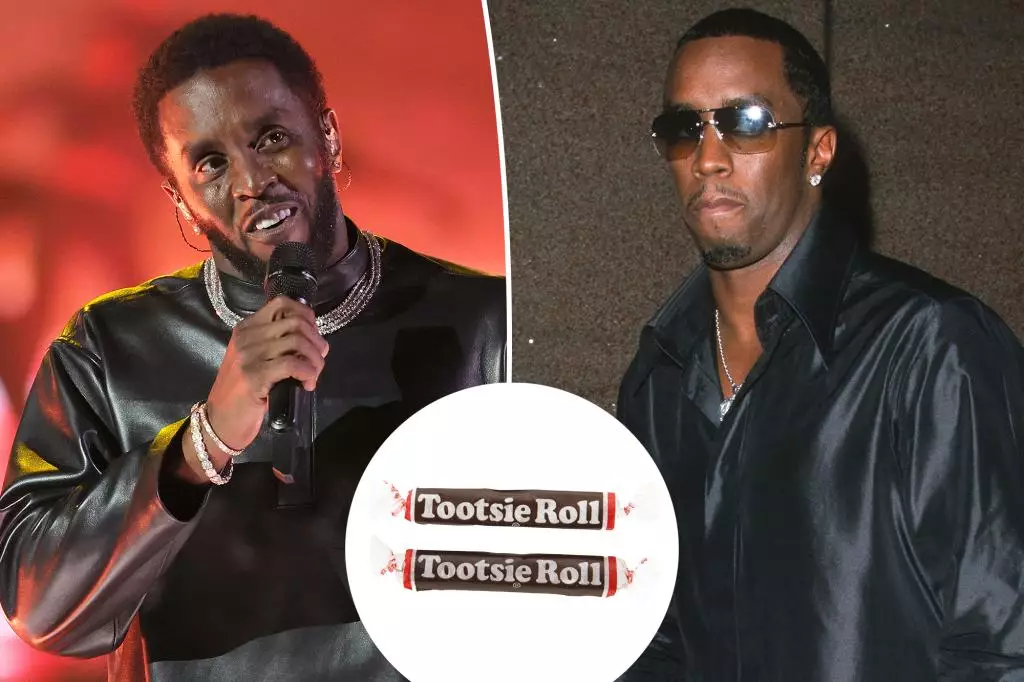Sean “Diddy” Combs, the influential figure behind Bad Boy Records and a mainstream icon, finds himself entangled in serious accusations that go beyond mere public scrutiny. A new lawsuit has surfaced, alleging that he raped a woman, identified as Jane Doe, during a troubling encounter in July 2001. This case has ignited debates about power dynamics, consent, and the troubling realities facing victims in the entertainment industry. It raises questions not just about the specific incident, but about how society views celebrity power and the myriad ways it can affect accountability.
Narrative of Control
The lawsuit unfolds with disturbing allegations that paint a picture of manipulation and intimidation. According to Jane Doe, her relationship with Combs began innocently, but took a dark turn when she was allegedly subjected to physical force in his New York apartment. The claim that he locked her in his bedroom and physically dominated her reveals a frightening scenario where power is wielded to control, not just physically but psychologically as well. The chilling words allegedly uttered by Combs during the confrontation—“I’m going to suck the life out of you”—speak to a significant imbalance of power and highlight the predatory nature of such actions.
Furthermore, the absurdly detailed description of Combs’ anatomy serves not only to incite a sense of sensationalism but also to emphasize the gravity of the misuse of power in such situations. The notion of her feeling “relieved” by the alleged size of his penis, which she compared to a “Tootsie Roll,” adds a layer of complexity, juxtaposing vulnerability with a peculiar sense of reassurance. Nevertheless, an encounter that pivots on non-consensuality undermines any semblance of relief.
The Aftermath of Trauma
What renders Doe’s case more compelling is the aftermath of this alleged event. She claims to have suffered psychological damage severe enough that she sought therapy. This speaks volumes about how traumatic experiences do not simply evaporate; they linger and transform an individual’s quality of life. The lawsuit isn’t merely a claim for damages; it is a cry for recognition of suffering that many victims endure in silence. It brings to the forefront the emotional toll on non-consenting individuals and the long-term ramifications they face while grappling with their experiences.
Reports indicate that following the incident, Doe ceased communication with Combs, underscoring a survivor’s desire to escape a situation marred by trauma. In a world where the victims often bear the burden of shame and secrecy, the act of stepping forward to file such a lawsuit is a courageous move. It serves as a potent reminder of the importance of speaking out against powerful individuals who may exploit their status to perpetuate silence.
Backdrop of the Entertainment Industry
This lawsuit emerges against the backdrop of a broader narrative of sexual misconduct within the entertainment industry. Combs’ legal troubles also coincide with an ongoing sex-trafficking trial, compounding the seriousness of these allegations. It further reveals a cultural shift, heightened awareness, and growing intolerance for abuse of power in all its forms. Increased conversations surrounding consent and recognition of victimized individuals in the entertainment industry signal a crucial turning point, albeit one bogged down by complexities and differing narratives.
The Repercussions of Public Allegations
Diddy’s legal representation vehemently denies any wrongdoing, suggesting that allegations should be viewed through a critical lens, especially if the accusers choose to remain anonymous. This challenges the very fabric of contemporary legal battles, where the balance between protecting the accused and honoring the voices of the victims often treads a fine line. The struggle to create an equitable environment around such cases is ongoing, requiring not just legal reforms but also a shift in public perception.
As society continues to grapple with the nuances of these allegations, the importance of addressing power imbalances, promoting open discussions about consent, and ensuring the safety of those brave enough to speak out cannot be overstated. The ramifications of such high-profile cases have the potential to shift tides, serving as focal points for systemic change within an industry that has long turned a blind eye to misconduct.

